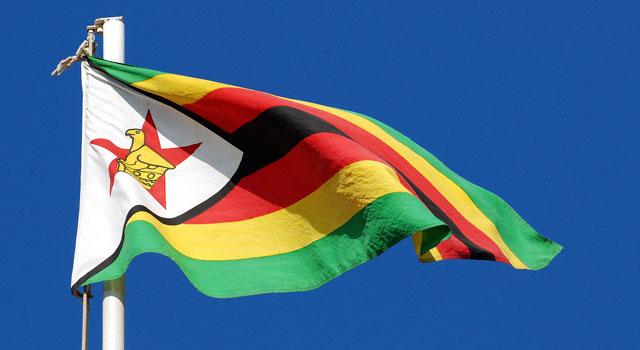News / National
'Zimbabwe economy among the least free globally'
08 Nov 2024 at 07:02hrs |
0 Views

Zimbabwe's economy remains among the least free globally, according to the Fraser Institute's newly released Economic Freedom Country Audit Zimbabwe (EFCAZ). The Canadian public policy think-tank, renowned for its Economic Freedom of the World annual survey, ranked Zimbabwe 172nd out of 165 countries worldwide, with a poor economic freedom score of 38.2. The country was also placed 46th out of 54 nations in sub-Saharan Africa.
Speaking at the launch of the country's audit in Harare on Wednesday, Fred McMahon, director of the Fraser Institute's Economic Freedom of the World program, highlighted the challenges Zimbabwe faces, including high inflation, volatile policies, restrictive licensing, and judicial inefficiencies. These factors have created a "repressed" state of the economy, according to the audit.
McMahon explained that countries with higher levels of economic freedom consistently experience higher rates of economic growth and a significant reduction in poverty. He emphasized that when individuals have the freedom to innovate, trade, and invest, the entire economy benefits.
"Economic freedom is simply the ability of individuals and families to make their own economic decisions free of interference from government," McMahon said, stressing that countries with a freer economic environment foster job creation, wealth generation, and overall prosperity.
Zimbabwe's 38.2 score places it far behind nations that have embraced free-market principles. McMahon noted that countries with lower economic freedom, such as Zimbabwe, struggle with inflation and regulatory burdens that hinder economic development. He pointed out the irony of using the US dollar as the country's primary currency, a necessity for nations grappling with hyperinflation, as Zimbabwe has in the past.
"The trouble is governments can expropriate your property through inflation just as they can through taxation, and it takes disciplined monetary authorities to prevent that," McMahon added. He acknowledged the widespread use of the American dollar in countries like Ecuador but emphasized that inflation remains a critical issue for Zimbabwe.
Further, McMahon stressed the importance of international trade as a key driver of economic prosperity, particularly for nations like Zimbabwe. "Zimbabwe needs the world as its marketplace to become rich. One of the great drivers of prosperity creation is trade, and yet Zimbabwe has, in effect, erected a trade fence around itself," he said, pointing to the country's restrictive trade regulations and tariffs as barriers to growth.
He also criticized Zimbabwe's business, labor, and capital market regulations, which, he argued, stifle economic activity. "The optimal level of regulation is not zero, but if regulation becomes overly burdensome, it dramatically reduces not just economic freedom but the ability to build prosperity in the nation," McMahon stated.
As Zimbabwe continues to face economic challenges intertwined with its volatile political landscape, McMahon's comments underline the urgent need for reforms to improve economic freedom and create a conducive environment for growth and development. The EFCAZ highlights how critical it is for Zimbabwe to adopt more market-friendly policies, encourage trade, and reduce government interference to foster a more dynamic and prosperous economy.
Speaking at the launch of the country's audit in Harare on Wednesday, Fred McMahon, director of the Fraser Institute's Economic Freedom of the World program, highlighted the challenges Zimbabwe faces, including high inflation, volatile policies, restrictive licensing, and judicial inefficiencies. These factors have created a "repressed" state of the economy, according to the audit.
McMahon explained that countries with higher levels of economic freedom consistently experience higher rates of economic growth and a significant reduction in poverty. He emphasized that when individuals have the freedom to innovate, trade, and invest, the entire economy benefits.
"Economic freedom is simply the ability of individuals and families to make their own economic decisions free of interference from government," McMahon said, stressing that countries with a freer economic environment foster job creation, wealth generation, and overall prosperity.
Zimbabwe's 38.2 score places it far behind nations that have embraced free-market principles. McMahon noted that countries with lower economic freedom, such as Zimbabwe, struggle with inflation and regulatory burdens that hinder economic development. He pointed out the irony of using the US dollar as the country's primary currency, a necessity for nations grappling with hyperinflation, as Zimbabwe has in the past.
"The trouble is governments can expropriate your property through inflation just as they can through taxation, and it takes disciplined monetary authorities to prevent that," McMahon added. He acknowledged the widespread use of the American dollar in countries like Ecuador but emphasized that inflation remains a critical issue for Zimbabwe.
Further, McMahon stressed the importance of international trade as a key driver of economic prosperity, particularly for nations like Zimbabwe. "Zimbabwe needs the world as its marketplace to become rich. One of the great drivers of prosperity creation is trade, and yet Zimbabwe has, in effect, erected a trade fence around itself," he said, pointing to the country's restrictive trade regulations and tariffs as barriers to growth.
He also criticized Zimbabwe's business, labor, and capital market regulations, which, he argued, stifle economic activity. "The optimal level of regulation is not zero, but if regulation becomes overly burdensome, it dramatically reduces not just economic freedom but the ability to build prosperity in the nation," McMahon stated.
As Zimbabwe continues to face economic challenges intertwined with its volatile political landscape, McMahon's comments underline the urgent need for reforms to improve economic freedom and create a conducive environment for growth and development. The EFCAZ highlights how critical it is for Zimbabwe to adopt more market-friendly policies, encourage trade, and reduce government interference to foster a more dynamic and prosperous economy.
Source - newsday
Join the discussion
Loading comments…
































